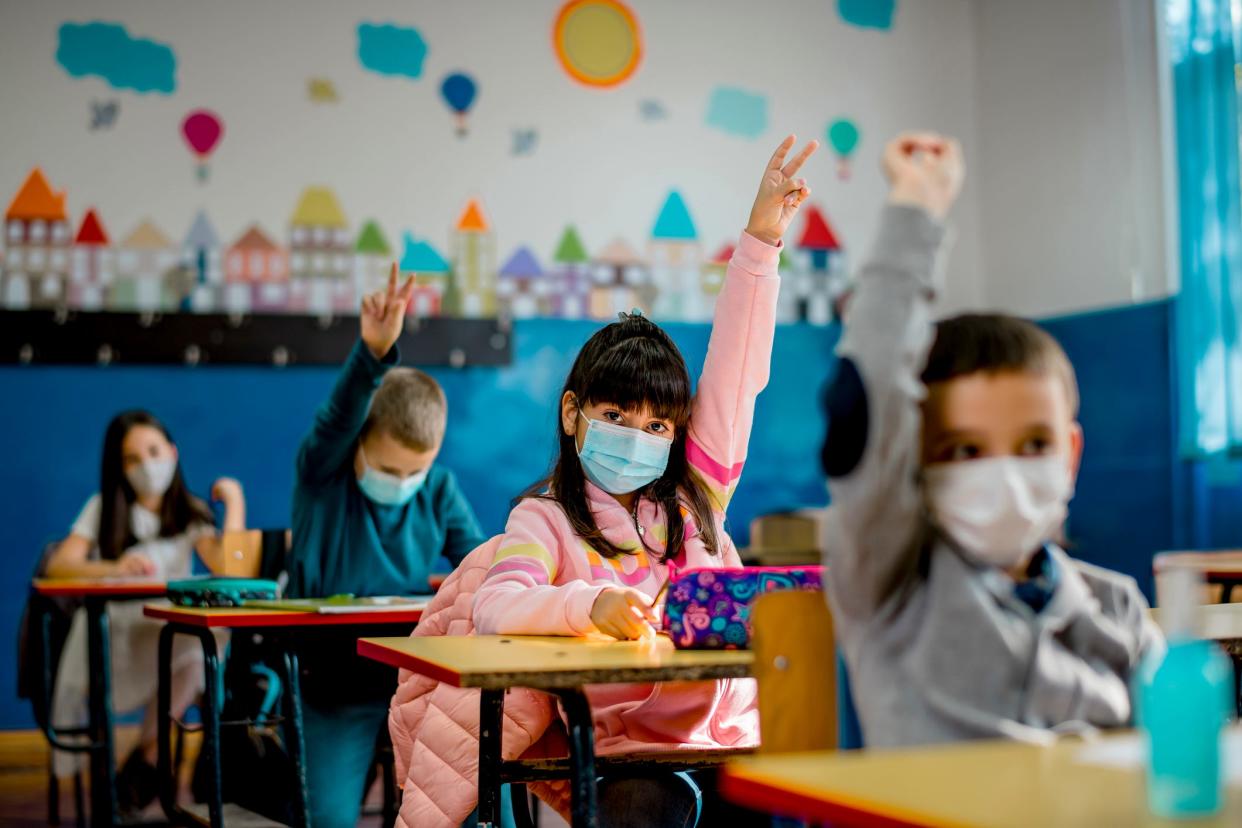COVID-19 always leaves a trace, and in children there's a risk for even more

The change in the appearance of a recent teenage patient surprised me. The young person had lost a considerable amount of weight since their last visit. Time was difficult to quantify ever since January, when the omicron variant of COVID-19 commandeered my office. Had it been two weeks? Maybe a month? Maybe even longer since that appointment? Reviewing the chart before entering the exam room, I realized it had been six weeks since the teen tested positive for COVID-19. It was unknown how the virus was contracted, just like many who got sick in December and January, including me. That day, the patient reported feeling fatigued, abnormally thirsty and had dropped an astounding amount of weight, nearly 18 pounds. Those symptoms meant something significant was happening; I only hoped it was not a complication of COVID-19.
For the past two months, I have been seeing more and more complications related to COVID-19 infection. Some have lingering nausea, ear infections, sinusitis, strange rashes and skin infections in unusual places. Others are fatigued to the extent they are unable to attend school. Three have lost their sense of taste or smell for months back when the delta variant was predominant. Sadly, a few developed autoimmune conditions, which will be lifelong afflictions, such as thyroid gland dysfunction, neurological abnormalities, or even Type 1 diabetes, which will require injections of insulin up to four times per day for the rest of their lives.
A CDC report, published Jan. 7, found that children with SARS-CoV-2 infection were up to 2.5 times more likely to be diagnosed with Type I diabetes. This condition, most often diagnosed in children and teens, occurs when the cells of the pancreas are damaged and unable to produce and release insulin, the hormone which regulates blood sugar levels in our body. Most autoimmune conditions, like Type 1 diabetes, are believed to be caused by “two hits”: a genetic predisposition coupled with a viral infection. Knowing about the increased risk after COVID-19 infection, I have been watching all four of my children like a hawk for those tell-tale signs: weight loss, thirst and fatigue.
As a parent and pediatrician, I hope the risk of complications is lower after infection with COVID-19 in children who were vaccinated. But I don’t know for sure. Many parents are asking questions like this, for which I have few answers. For example: After contracting COVID-19, should my children still get vaccinated? Should they still receive a COVID-19 booster? What does the future hold for children suffering with symptoms and signs of long-COVID-19? When will the sense of taste and smell return? Will they have these autoimmune conditions for the rest of their lives? These questions are hard to answer.
Unfortunately, recently-released research in children under 18 is not that encouraging. According to a large data set collected by health officials in New York State on children between the ages of 5-11, the Pfizer vaccine — the only immunization against COVID-19 approved for this age group — mitigates severe illness, but offers virtually no protection against contracting the infection. In the study, researchers analyzed data from 852,384 fully vaccinated children aged 12 to 17 years and 365,502 children aged 5 to 11 years between Dec. 13, 2021, and Jan. 31, 2022, during the height of the omicron surge. In the older age group, vaccine effectiveness against infection was only 51 percent, whereas prevention of hospitalization hovered around 73 percent. For the younger children, aged 5-11, effectiveness against infection was downright dismal, just 12 percent. The reduction in hospitalization risk was just 48 percent in the younger age group.
This new data, collected during the omicron surge, has significant ramifications for parents. As a parent to four fully-vaccinated children, all of whom contracted the omicron variant, these findings are not all that surprising. But it doesn’t tell us the whole picture. The study did not evaluate the severity of disease experienced by these children. It did not explore the serious complications of COVID-19 infection in fully-vaccinated children. I am left wondering what these findings actually mean.
For now, I can only share anecdotal knowledge based on my own experience. So far, every single child experiencing autoimmune complications of COVID-19 in my practice, which is now more than a dozen, has been unvaccinated. And every single affected child has been between the age of 14-18. While this suggests that vaccinated children might be less likely to experience long-term complications or develop lifelong autoimmune conditions, I do not know for sure. I hope that is true.
The truth is that the vaccination is the best defense we’ve got. That teenager mentioned at the start of this column, the one who contracted COVID-19 in late December and came in with weight loss, fatigue and thirst? They now have Type 1 diabetes — and won't be the only one.
Dr. Niran Al-Agba is a pediatrician in Silverdale and writes a regular column for the Kitsap Sun. The patients described in this column have had personal details omitted for confidentiality, and consented to their story being shared. This column is not intended as medical advice, always consult with your personal physician. Contact Dr. Al-Agba at niranalagba@gmail.com.
This article originally appeared on Kitsap Sun: What's unknown about COVID-19's long-term impact on kids

